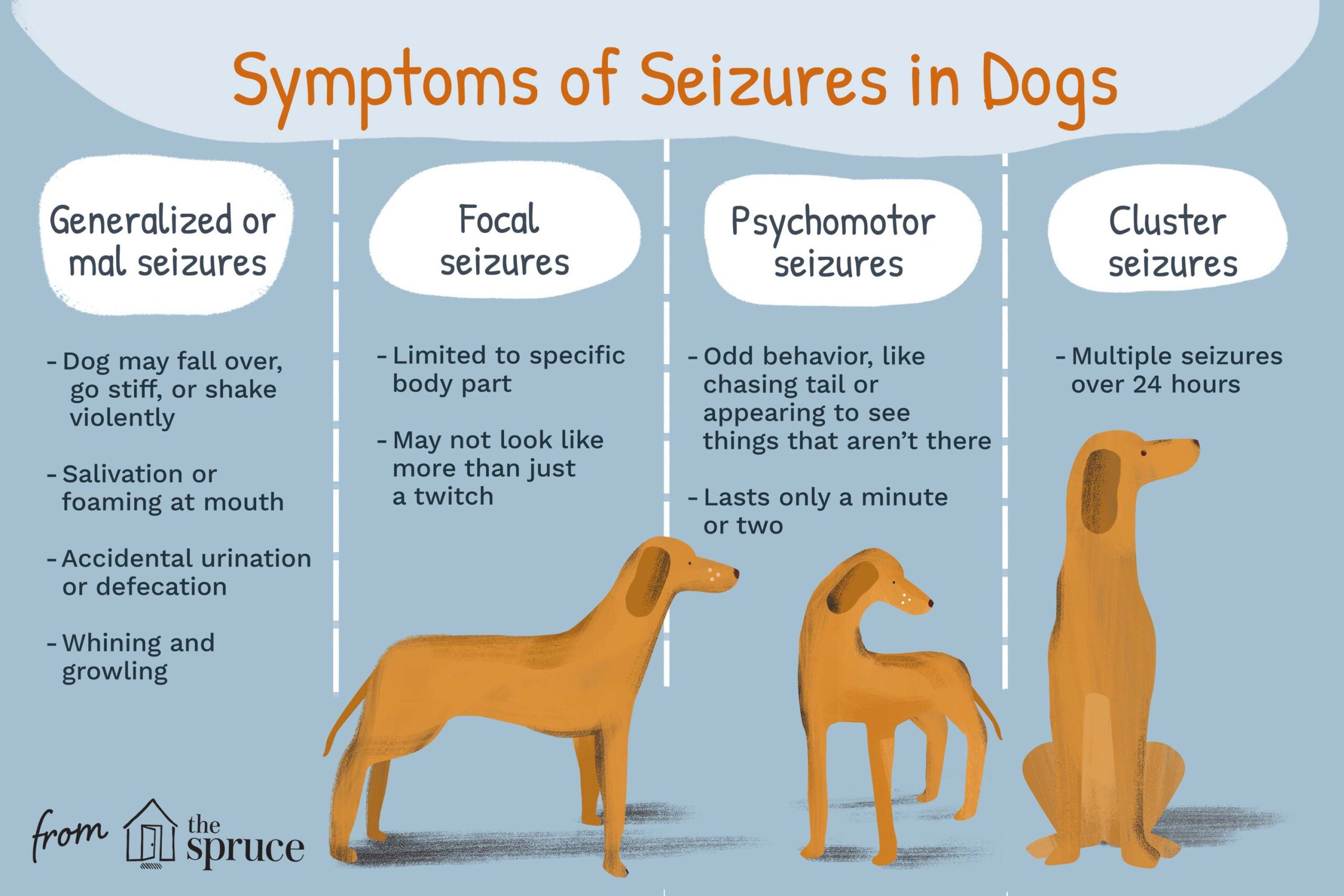Key Takeaways:
- Ivermectin is generally safe for dogs when used at the recommended dosage.
- However, certain dog breeds, such as Collies and related breeds, are more sensitive to Ivermectin and may experience severe side effects even at low doses.
- Common side effects of Ivermectin in dogs include vomiting, diarrhea, and lethargy.
- Overdosing on Ivermectin can lead to neurological symptoms like tremors, seizures, and even coma or death.
- Prior to administering Ivermectin to a dog, it is important to consult with a veterinarian to determine the appropriate dosage based on the dog's weight and breed sensitivity.
Are you a dog owner who wants to ensure the safety and well-being of your furry friend? If so, then understanding the ins and outs of ivermectin is crucial. This powerful medication is commonly used to treat parasites in dogs, but it's essential to be aware of its potential side effects. By delving into this topic, you'll gain valuable knowledge that can help you make informed decisions about your dog's health. In fact, did you know that ivermectin is considered safe for most dogs when administered correctly? However, certain breeds may have a genetic sensitivity to this medication, which can lead to severe reactions. So, whether you're seeking peace of mind or looking out for your pup's best interests, exploring the safety and side effects of ivermectin in dogs is definitely worth your time. Let's dive in and uncover everything you need to know!
What is Ivermectin and why is it used for dogs?
Ivermectin is a medication that is commonly used to treat parasites in dogs. It belongs to a class of drugs called antiparasitics, which means it helps to get rid of harmful parasites that can make dogs sick. These parasites can include things like heartworms, fleas, ticks, and mites.
Ivermectin works by targeting the nervous system of these parasites, causing them to become paralyzed and eventually die. This helps to eliminate the infestation and prevent further harm to the dog's health. It is often prescribed by veterinarians as a safe and effective treatment option for various parasitic infections in dogs.
Some common uses of Ivermectin for dogs include:
- Treating and preventing heartworm disease
- Killing fleas and ticks
- Eliminating mange mites
- Controlling ear mites
It's important to note that Ivermectin should only be used under the guidance of a veterinarian, as they will determine the appropriate dosage and duration of treatment based on the individual dog's needs.
How does Ivermectin treat parasites in dogs?
Ivermectin works by disrupting the nerve impulses in parasites, leading to their paralysis and death. It specifically targets certain receptors present in the nervous system of these pests, which are different from those found in mammals like dogs.
The way Ivermectin affects these receptors makes it highly effective against a wide range of parasites while being relatively safe for dogs when used correctly. The medication is usually administered orally or through topical application, allowing it to enter the bloodstream and reach the parasites throughout the dog's body.
Once inside the parasites, Ivermectin binds to their nerve cells and interferes with the normal functioning of their nervous system. This causes a disruption in communication between nerve cells and leads to paralysis in the parasites. As a result, they are unable to feed or reproduce, eventually dying off.
It's important to note that Ivermectin does not kill parasites instantly. It may take some time for the medication to fully eliminate an infestation, and multiple doses may be required depending on the severity of the problem.
Are there any side effects of using Ivermectin in dogs?
While Ivermectin is generally considered safe for dogs when used as directed by a veterinarian, there can be potential side effects that dog owners should be aware of. These side effects are rare but can occur, especially if the dog has certain genetic sensitivities or if an incorrect dosage is administered.
Some possible side effects of Ivermectin use in dogs include:
- Vomiting
- Drooling
- Lethargy
- Tremors or seizures
- Incoordination
If any of these symptoms occur after giving your dog Ivermectin, it is important to contact your veterinarian immediately. They will be able to provide guidance on how to manage these side effects and determine if any further treatment is necessary.
What are the signs of a bad reaction to Ivermectin in dogs?
In rare cases, some dogs may have a genetic sensitivity to Ivermectin, which can lead to a severe reaction known as Ivermectin toxicity. This sensitivity is more commonly seen in certain dog breeds, such as Collies and Australian Shepherds.
The signs of a bad reaction to Ivermectin in dogs can include:
- Dilated pupils
- Staggering or difficulty walking
- Tremors or seizures
- Excessive drooling
- Loss of appetite
- Depression or lethargy
If you notice any of these symptoms after giving your dog Ivermectin, it is crucial to seek immediate veterinary attention. Ivermectin toxicity can be life-threatening if not treated promptly.
Do different dog breeds handle the same amount of Ivermectin equally?
No, different dog breeds do not handle the same amount of Ivermectin equally. Some dog breeds, such as Collies and Australian Shepherds, have a genetic mutation that makes them more sensitive to the effects of Ivermectin.
This genetic mutation affects the way these dogs metabolize and eliminate the drug from their bodies. As a result, they may experience higher concentrations of Ivermectin in their system for a longer duration compared to other breeds. This increased sensitivity puts them at a higher risk for developing adverse reactions or toxicity when given standard doses of Ivermectin.
If you have a dog breed that is known to be sensitive to Ivermectin, it is essential to inform your veterinarian so that they can prescribe an alternative treatment option or adjust the dosage accordingly.
How can dog owners use Ivermectin safely for their pets?
Using Ivermectin safely for dogs involves following the guidance of a veterinarian and taking certain precautions:
- Always consult with a veterinarian before using Ivermectin on your dog.
- Never use Ivermectin meant for other animals or humans on your dog, as the dosage and formulation can be different.
- Ensure you are using the correct dosage based on your dog's weight and the specific parasite being treated.
- Administer the medication exactly as directed by your veterinarian, whether it is orally or topically.
- Monitor your dog closely after giving them Ivermectin for any signs of adverse reactions or toxicity.
- If you have a breed known to be sensitive to Ivermectin, discuss alternative treatment options with your veterinarian.
By following these guidelines and working closely with a veterinarian, dog owners can safely use Ivermectin to effectively treat and prevent parasitic infestations in their pets.
In conclusion, Ivermectin is generally safe for dogs when used at the correct dosage. However, it can have serious side effects if given in high doses or to certain dog breeds. It is important for dog owners to consult with a veterinarian before using Ivermectin to ensure their pet's safety.
How safe is ivermectin for dogs?
When administered correctly and monitored by a veterinarian, ivermectin is generally safe and highly effective in treating and preventing various parasites in dogs. However, if a dog with the specific genetic mutation takes the drug, it can result in a serious and potentially fatal reaction known as ivermectin toxicity.
What breed of dog has ivermectin toxicity?
While it is frequently observed in herding breeds like Collies, Old English Sheepdogs, and Australian Shepherds, this condition can occur in any breed.
What dogs Cannot take ivermectin?
The gene mutation that causes sensitivity to Ivermectin is most commonly found in Collies and similar breeds such as Australian shepherds, Shelties, Long-haired whippets, English sheepdogs, German shepherds, Silken Windhounds, Skye terriers, and other breeds that have white feet. This information was last updated on February 1, 2022.
What does ivermectin cure in dogs?
Ivermectin, a medication belonging to the avermectin group, is employed to manage parasites in animals. Its primary usage is for treating gastrointestinal and respiratory parasites, as well as certain external parasites in cattle, sheep, horses, dogs, cats, and swine. Additionally, it can be utilized for the prevention of heartworm in dogs and cats.
Can dogs survive ivermectin toxicity?
If a dog is given too much medication (10 to 20 times the recommended dose), it can result in toxicity. Some dogs are also genetically sensitive to the medication, which means that it can directly affect their brain and be toxic or even fatal.
How do you reverse ivermectin toxicity in dogs?
There is currently no cure for the poisoning, and the only available treatment is providing support and care. In some cases, inducing vomiting and giving activated charcoal may be done. However, early and comprehensive supportive care can increase the chances of a full recovery.

















